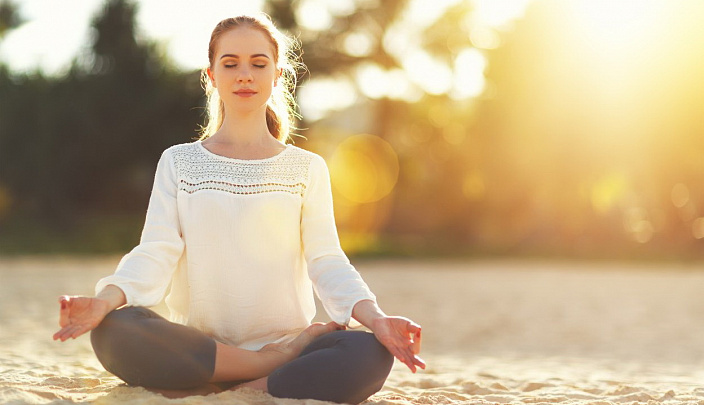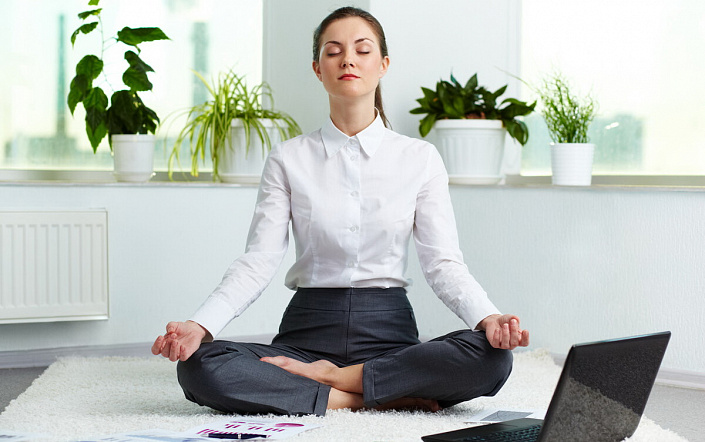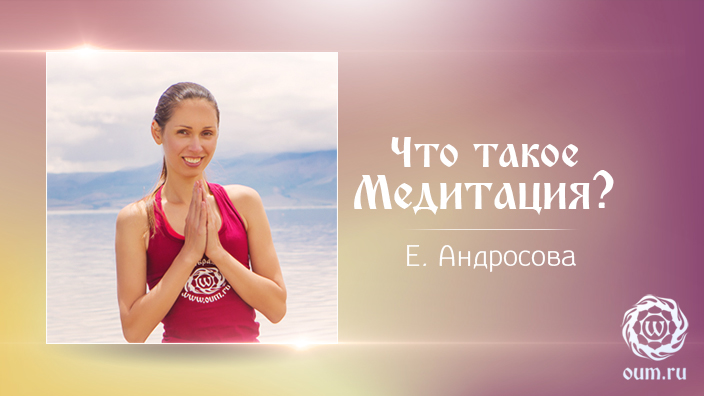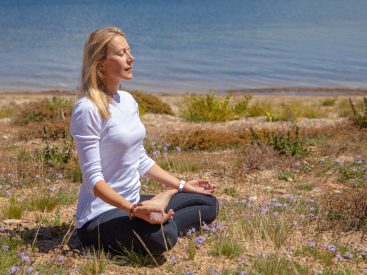WITHToday, the term “meditation” is understood to mean many different practices. It can be relaxation, concentration, auto-training, or even just thinking about something – this is called analytical meditation. Meditation in the original sense of the word corresponds to the Sanskrit concept of “dhyana”, which can be translated as “intuitive seeing” or “seeing with the mind.”
One way or another, any work with one’s consciousness, even if it does not fit the classical definition of meditation, allows a person to work through his inner problems. And, as you know, all problems – they come only from within, so it can be said without exaggeration that meditation is the key to solving many, including purely material, problems.
Since we have found out that meditation allows you to change your personality at a deep level and, as a result, change your life, then the question arises: how much time should you devote to meditation? Let’s try to consider it from several sides.
- The best time to meditate is before dawn and before bed;
- The duration of the meditation should be comfortable;
- The optimal regularity of meditation is twice a day;
- Meditation should become an everyday state.
Let’s consider these and other questions and try to find the optimal conditions for effective practice.
First, let’s decide when is the best time to meditate. From the point of view of Vedic philosophy for spiritual practices, there is a special time called “brahma-muhurta”, which means “God’s hour”. In fairness, we note that this time does not last exactly an hour, but 48 minutes. There is no precise definition of what time the brahma-muhurta begins. The fact is that it depends on the time of year and the region, because the brahma-muhurta is “tied” to the sunrise and starts 1 hour 36 minutes before dawn. And it is this time that is considered the most favorable for any spiritual practice, including the practice of meditation. It is believed that at this time the influence of the so-called gunas (qualities of material nature) is minimal, and it is at this time that our mind and energy body are in a state of rest, which allows us to meditate most effectively.
Meditation in the morning will allow you to tune your mind for a fruitful day, because all our problems arise only from excessive disturbance of the mind. If we equally perceive success and loss, we can act more rationally and, as a result, be more effective.
It is believed that, waking up before dawn, we receive the energy of the rising sun, therefore, even just getting up before sunrise, we will gradually develop spiritually, so to speak, automatically. And if we also devote the time before sunrise to spiritual practice, progress will go simply at the speed of light – the light of the rising sun.
In addition to morning meditation, you can also practice evening meditation. This can be done either before dinner or before bed, but if 2-3 hours have passed after dinner. In general, it is not recommended to meditate after eating, since digestion is a very energy-consuming process, and on the subtle plane, energy is concentrated in the third chakra – this is not very favorable for meditation. According to one of the yoga and meditation teachers, it is undesirable to even drink juice before meditation, as the process of assimilation will interfere with the calmness of the mind and concentration. Therefore, if you decide to meditate in the evening, it is better to either do it before dinner, or 2-3 hours after it, just before bedtime.
Meditation before bed is the best way to calm down the various stresses that many of us experience during the day and prepare ourselves for sleep. There is such a recommendation for healthy sleep – an hour or two before bedtime, stop using the TV, computer, gadgets, etc. And the question often arises: what then to do during these two hours? And meditation is the best pastime before bed. It will allow you to calm your mind and free yourself from daytime experiences.
Thus, there are at least two periods for meditation: before dawn and before sleep. This does not mean at all that you cannot meditate at any other time – if you have the opportunity and desire, you can meditate at any time of the day, but the most effective meditation will be just before sunrise and before bedtime.
Now let’s talk about how long the meditation should be. It depends on the level of the practitioner. Those who have been practicing for a long time can freely stay in this state for one to several hours. For beginners, a time of five to ten minutes is likely to be optimal. Everything here is individual. This is one of the rare occasions where austerity is likely to be unhelpful. The duration of the meditation should be comfortable. If you have the patience for just five minutes, then start with five minutes. It is better to meditate regularly for five minutes than to sit for forty minutes once and then give up.
In general, the most important thing in meditation is not duration, but regularity. Try to choose a comfortable time and duration of meditation, and meditate at the same time, keeping the duration. Over time, the duration of meditation can be gradually increased, the main thing is not to decrease it. So if you feel like you can sit comfortably for five minutes, start with five minutes.
The point is that concentration is important in meditation. This is not given to everyone at once. If you can only stay focused for five minutes, then that will be enough to get you started. Better a short meditation, but with good concentration, than a long one, without it.
As you master the practice, meditation should last at least 20 minutes. Again, everything feels like, but this is the level you should strive for. The fact is that this is exactly how long it is necessary to remain motionless in order for our subtle body and, as a result, our mind to come to a state of rest, which is necessary for quality meditation.
So we come to the main question: how much can you meditate a day? We often hear that everything needs a measure and “too good is also not good”. As for meditation, this rule hardly works here, however, there is one important point. It is not recommended to abruptly immerse yourself in meditative practices for a long time and do them too often. Have you seen how the rocket fires from the rocket launcher? Noise, flame, light – a bright fire soars high, illuminates everything around, but for a few seconds – and everything goes out. The same can happen to a person who is too zealous about the question of practice. Here the so-called pendulum can work – first a fanatical immersion in practice, and then everything quickly gets boring. Therefore, you should start gradually. However, if there is desire and inspiration, you can meditate as much as there is enough inspiration. The main thing is not to drive yourself into severe austerities.
How much a day can you meditate? The best option would be to meditate twice a day. For a socially active person (monks in ashrams can meditate for 8 hours a day, but for most people this is irrelevant), the best option would be morning meditation in order to set yourself up for the effective implementation of the tasks ahead during the day, and evening meditation before going to bed. to calm down and prepare for bed. Total twice a day. If you have the time and desire, you can also practice daytime meditation to return to a calm and conscious state.
Generally speaking, time for meditation is a conditional concept. As you master the practice and the stability of the meditative state, meditation becomes not a process, but a state. That is, our task is to constantly be in a state of peace, awareness and concentration. It’s like breathing – there are many practices aimed at learning to breathe “correctly” – with the diaphragm, deeply, slowly, and so on. And can we say that for this process you need to allocate a specific time? At the first stage, yes – to train the desired skill. But the ultimate goal is to breathe in this rhythm all the time.
It’s the same with meditation. Our task is not just to perform a morning or evening ritual, “put a tick”, and then again plunge into vanity and anxiety. It is important to understand what we are doing and why. There is one parable about how a person performed a ritual, forgetting about the essence.
A brahmana who was performing rituals in a temple once picked up a cat on the street and gave him shelter. But the cat prevented him from performing the rituals. Then he began to bind the cat while performing religious rituals. Then the brahmana gave up his body, and the cat followed after him. Then the son, inheriting the work of his father, began to perform rituals in the temple, but, remembering that the father was tying the cat, he went, bought a cat and began to tie him up for the duration of the rituals. Funny situation, isn’t it? But often we do the same – performing the usual rituals, we forget about the original meaning.
And meditation is performed not for the sake of meditation itself, but in order to change your personality, to work through deep negative attitudes, to become more calm, benevolent, and conscious. And if for many years practicing meditation, a person remains angry and irritable, then something is wrong with his practice. Thus, let the most important principle of meditation remain in your memory – it should not be just a practice, not a ritual, it should eventually become your habitual state. And then the question of how much you can meditate a day will lose its relevance. But at the initial stage, the most important thing is regularity. If it is at least once for five minutes – so be it, but regularly.






